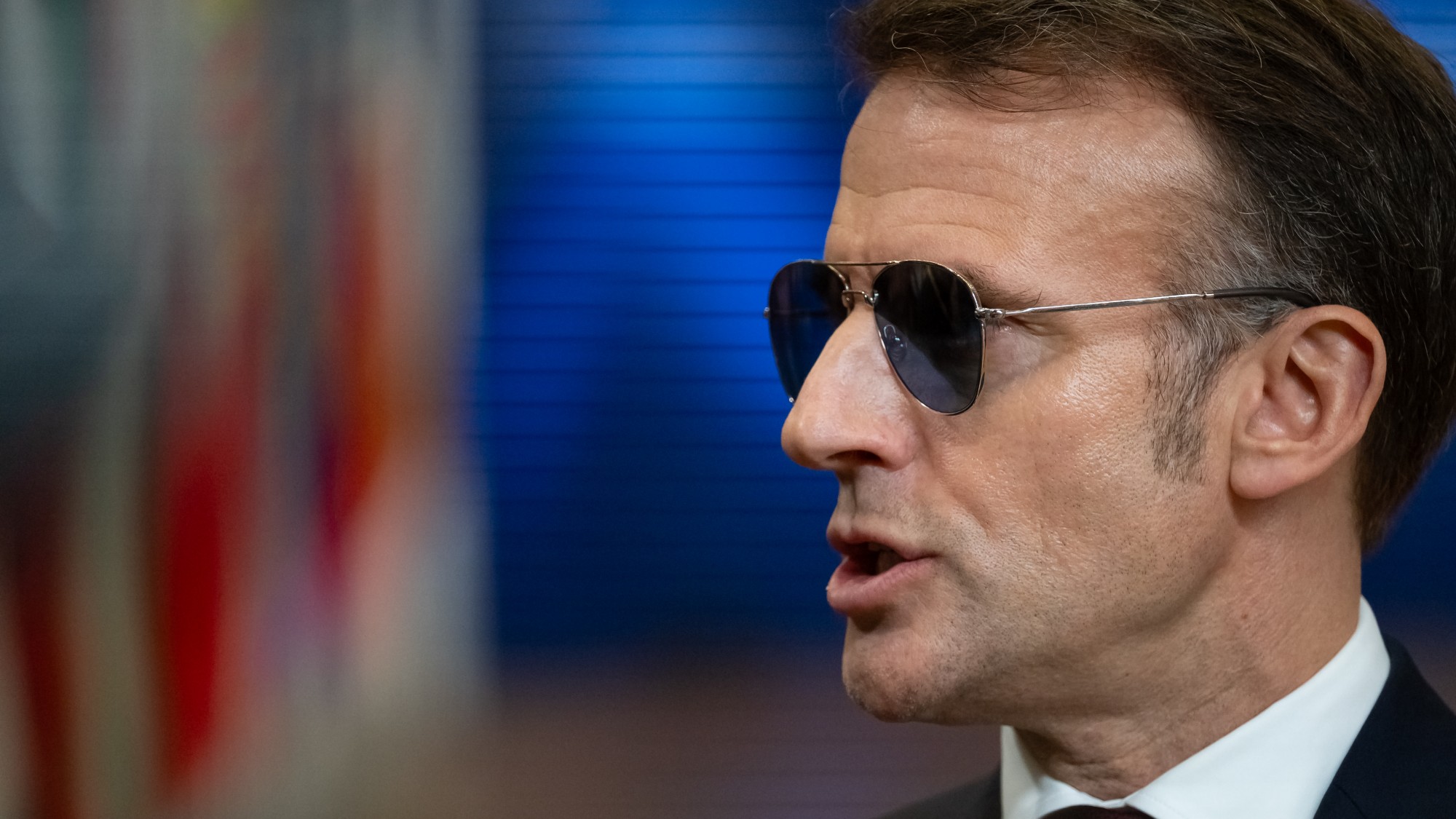Is 'don't ask, don't tell' being rammed through?
The heads of the Army, Marines, Air Force, and Navy don't like the compromise to end DADT. Will Congress pass it anyway?

Lawmakers predict there are enough votes in Congress to pass a White House-Congress-Pentagon compromise to end the "don't ask, don't tell" policy on gays in the military. But in separate letters collected by Sen. John McCain, the chiefs of the Army, Navy, Air Force, and Marines say the military should be allowed to finish its lengthy review of the repeal process before Congress votes. Defense Secretary Robert Gates and Adm. Mike Mullen, chairman of the joint chiefs, agreed to the deal — but is it being rushed by Democrats for political reasons? (Watch Rachel Maddow discuss the "urgency" behind a "don't ask, don't tell" repeal)
Democrats are putting politics above national security: Lifting DADT may be the right thing to do, says Boston Herald editor Jules Crittenden in his blog, but it should be "handled in deliberative fashion rather than a petulant political one so that there are no chaotic results." We're at war, after all, and Obama shouldn't be "pushing politics ahead of national security" to appease gay voters.
The Week
Escape your echo chamber. Get the facts behind the news, plus analysis from multiple perspectives.

Sign up for The Week's Free Newsletters
From our morning news briefing to a weekly Good News Newsletter, get the best of The Week delivered directly to your inbox.
From our morning news briefing to a weekly Good News Newsletter, get the best of The Week delivered directly to your inbox.
The military brass is just stalling for time: The armed forces can handle integrating "uncloseted gays and lesbians," says The Boston Globe in an editorial, just as it did black and female soldiers. And the compromise agreed to by the "commander-in-chief and the civilian and uniformed leaders of the military" gives the Pentagon plenty of time to finish "cross[ing] all the i's and dott[ing] all the t's."
"Congress: Don't wait on 'don't ask'"
Democrats should be making this happen faster: Gays and lesbians agreed to this "crappy compromise" because they were afraid they wouldn't get another chance to repeal DADT for many years, says Pam Spaulding in Pam's House Blend. Unfortunately, the deal gives the military final say in "triggering" the repeal. In reality, DADT could be in force indefinitely, leaving "us just as screwed as if no deal was made."
"Adm. Mullen: proposed DADT repeal 'gives senior leaders the final say...'"
A free daily email with the biggest news stories of the day – and the best features from TheWeek.com
-
 Syria’s Islamic State problem
Syria’s Islamic State problemIn The Spotlight Fragile security in prison camps leads to escape of IS fighters
-
 Quiz of The Week: 17 – 23 January
Quiz of The Week: 17 – 23 JanuaryQuiz Have you been paying attention to The Week’s news?
-
 The Week Unwrapped: What can we learn from a tool-wielding cow?
The Week Unwrapped: What can we learn from a tool-wielding cow?Podcast Plus, have we reached ‘peak billionaire’? When should troops disobey their superiors?
-
 The billionaires’ wealth tax: a catastrophe for California?
The billionaires’ wealth tax: a catastrophe for California?Talking Point Peter Thiel and Larry Page preparing to change state residency
-
 Bari Weiss’ ‘60 Minutes’ scandal is about more than one report
Bari Weiss’ ‘60 Minutes’ scandal is about more than one reportIN THE SPOTLIGHT By blocking an approved segment on a controversial prison holding US deportees in El Salvador, the editor-in-chief of CBS News has become the main story
-
 Has Zohran Mamdani shown the Democrats how to win again?
Has Zohran Mamdani shown the Democrats how to win again?Today’s Big Question New York City mayoral election touted as victory for left-wing populists but moderate centrist wins elsewhere present more complex path for Democratic Party
-
 Millions turn out for anti-Trump ‘No Kings’ rallies
Millions turn out for anti-Trump ‘No Kings’ ralliesSpeed Read An estimated 7 million people participated, 2 million more than at the first ‘No Kings’ protest in June
-
 Ghislaine Maxwell: angling for a Trump pardon
Ghislaine Maxwell: angling for a Trump pardonTalking Point Convicted sex trafficker's testimony could shed new light on president's links to Jeffrey Epstein
-
 The last words and final moments of 40 presidents
The last words and final moments of 40 presidentsThe Explainer Some are eloquent quotes worthy of the holders of the highest office in the nation, and others... aren't
-
 The JFK files: the truth at last?
The JFK files: the truth at last?In The Spotlight More than 64,000 previously classified documents relating the 1963 assassination of John F. Kennedy have been released by the Trump administration
-
 'Seriously, not literally': how should the world take Donald Trump?
'Seriously, not literally': how should the world take Donald Trump?Today's big question White House rhetoric and reality look likely to become increasingly blurred